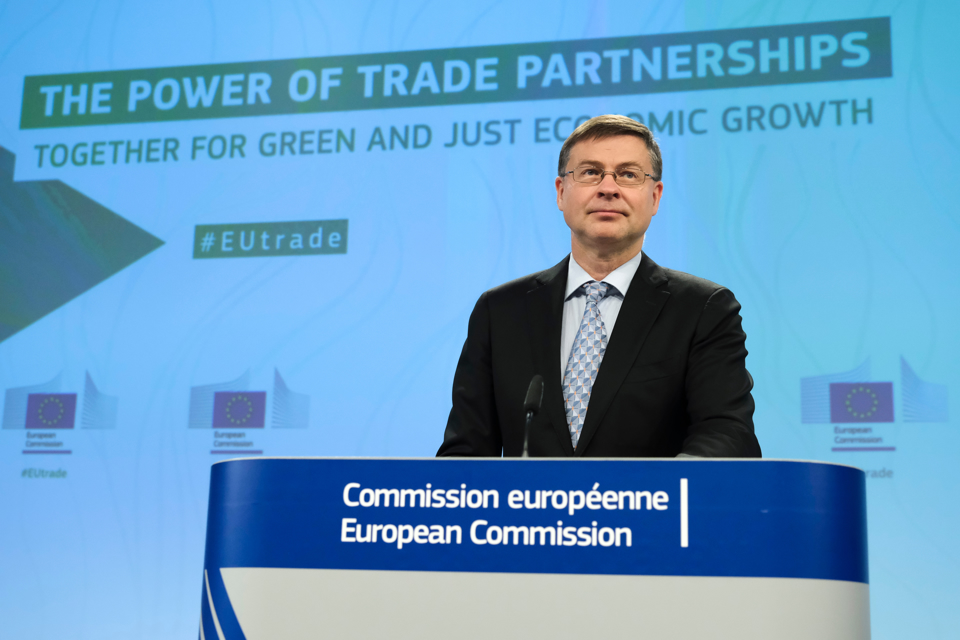Yesterday, the European Commission finally released its Communication on ‘The power of trade partnerships: together for green and just economic growth’, which aims to make EU trade greener, fairer and more sustainable. Trade unions have long been calling on the EU to strengthen the implementation and enforcement of the Trade and Sustainable Development (TSD) chapters of the EU's trade agreements, especially regarding workers’ rights.
IndustriAll Europe has consistently called for a tougher approach to ensuring that EU trade is fair and sustainable. For trade unions, this means applying sanctions where fundamental workers’ rights are breached. While many FTAs look good on paper, the situation is not always positive on the ground, and industriAll Europe insists that EU action, including increased monitoring and applying sanctions, could improve the lives of millions of workers around the world.
Most of the EU’s current FTAs have Trade and Sustainable Development (TSD) chapters, which are monitored by trade union representatives and other relevant stakeholders via Domestic Advisory Groups (DAGs). IndustriAll Europe participates in various EU DAGs (including EU-Vietnam, EU-South Korea, and EU-UK) and this provides an opportunity to assess and monitor the situation facing workers in these countries.
The TSD chapters of EU trade agreements require effective implementation of International Labour Organization (ILO) conventions and the respect of the core ILO principles. This is of particular importance to trade unions. Furthermore, TSD chapters in some FTAs specifically call for the ratification of unratified, fundamental ILO conventions and set out commitments on social dialogue, decent working conditions and labour inspections.
- Incentives and support for trade partners for reform processes and capacity building through technical and financial assistance.
- A tailored approach and better targeted impact assessments.
- The development of detailed and time-bound roadmaps with milestones, with a role for civil society in monitoring their implementation.
- The revision of the Operating Guidelines for the Single Entry Point to increase transparency and predictability for stakeholders, with DAGs able to file collective complaints.
- Further resources for EU DAGs to strengthen their logistical support, capacity building and functioning.
- The possibility to apply trade sanctions in cases of non-compliance with the ILO fundamental principles and rights at work.
Judith Kirton‐Darling, Deputy General Secretary for industriAll Europe, said:
‘’All workers deserve to be safe at work, to be able to join a union, and to have the right to collective bargaining. European trade unions have put pressure on the EU to make positive changes to trade instruments, including action to implement on the ground what was agreed on paper.
"We welcome yesterday’s Communication with proposals for increased support and an enhanced role for trade unions and civil society, but the proof will be in the pudding. We must ensure that improvements to the complaints procedure lead to swift investigations and tough remedying action, including sanctions when labour rights are being abused."
Contact: Andrea Husen-Bradley (press and communication), Elspeth Hathaway (policy adviser)

